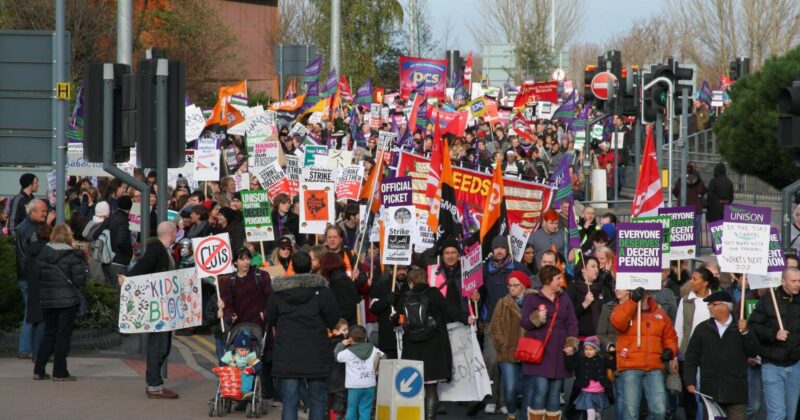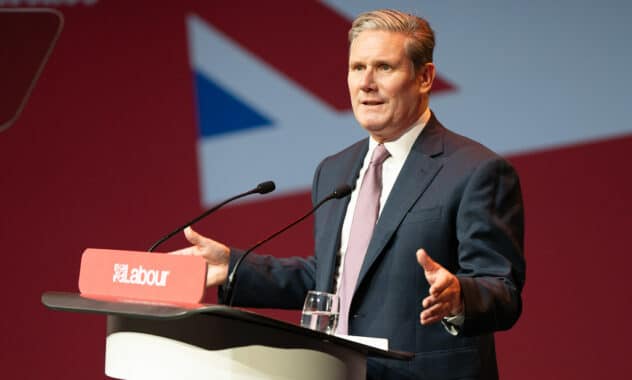Labour faces criticism for backtracking on workers’ rights commitments
A series of articles takes the Labour Party to task over the dropping of the pledge to create a single status for all workers

The last couple of weeks has seen the Labour Party facing mounting criticism over it’s apparent backtracking on workers’ rights. A series of articles have highlighted what many see as a steady watering down of commitments contained in a document entitled A New Deal for Working People – a policy paper setting out in detail how the party would strengthen workers’ rights.
This document had been put together by then-Shadow Minister for Employment Rights and Protections, Andy McDonald, which in turn had been based on Labour’s Work Manifesto in 2019, produced by Shadow Secretary of State for Employment Rights, Laura Pidcock. Much of both the New Deal for Working People and Labour’s manifesto commitments on worker’s rights were based on long-standing work by the Institute of Employment Rights.
In Tribune Magazine, former political adviser To Andy McDonald, Karl Hansen, took the Labour leadership to task over the jettisoning of New Deal policies:
“The current system makes workers insecure by design. Workers who have yet to qualify for, or are not entitled to, redundancy pay or protection against unfair dismissal are in a state of precarity – and therefore much less likely to organise and demand improved conditions.
This means that the lack of rights and protections is not just a problem for those in insecure forms of work. It is a problem for workers and the economy as a whole. These practices put a downward pressure on wages and terms across the board, making us all poorer and facilitating a race to the bottom that is partly responsible for Britain’s poor growth and productivity.”
Adding:
“Labour Party officials behind the jettisoning of New Deal policies reportedly want to defuse Tory attacks on the party’s ‘anti-business’ policies. But this is a paper-thin excuse: the public overwhelmingly supports improving workplace rights – including two-thirds of Conservative voters. This is a mandate for change that the party looks set to spurn.
Party insiders describe a ‘smoked salmon and scrambled egg offensive’ to woo big business ahead of the next election. This is compounded by the Labour front bench reportedly meeting with lobbyists for Amazon, one of the world’s most anti-worker employers, in recent weeks. It all paints a picture of a party that is intensely relaxed about injustice in the workplace.”
In The Guardian, political commentator Owen Jones took a similar line,
“What we’ve seen so far is not promising. No longer is the party committed to “create a single status of ‘worker’ for all but the genuinely self-employed”, which would address the misclassification of gig workers. Rather, a consultation will be held to “simplify” the workers’ rights framework. The question of whether millions of workers will qualify is left unanswered. What’s worse, this retreat from existing policy was briefed in the Financial Times as evidence of the party’s growing deference to big business.
Invited to comment further,a party official gloated that businesses are “running towards us – whether that’s donating money or sitting down with us to write our plans for growth”. This doesn’t generate much confidence that the party of Labour will side with workers.”
Jones also highlights the limited ambitions on collective bargaining, such a crucial part of the 2019 proposals and the New deal for Working People:
“Another key union aspiration is sectoral bargaining, where a collective agreement covers all workers in each sector of the economy, as is the norm in Denmark and Sweden. But Labour is only committed to its introduction in social care, with a review of its performance before being extended elsewhere. In a sector defined by precarity and a higher turnover of staff, this could prove hard to pull off. And the fear, again, is that it will go no further.”
And most recently, columnist Kenan Malik discussed the ‘Uberisation’ of the UK economy in The Guardian and Labour’s backtracking on casual workers:
“A study last year by the thinktanks Autonomy and the Centre for Labour and Social Studies on the “Uberisation” of the British economy observed how “insecurity” had “become an endemic part of British working life”. The kind of precarity once associated solely with the gig economy now spreads through many employment sectors: health and care, hospitality, cleaning, hair and beauty, and even “previously protected middle-class jobs in academia”.
It was against this background that the Labour party pledged two years ago to erase the distinction between employee, worker and the bogus self-employed “by creating a single status of ‘worker’ for all but the genuinely self-employed”. All workers, “regardless of sector, wage, or contract type”, would be “afforded the same basic rights and protections”. This, as Labour’s green paper, A New Deal for Working People, observed, would ensure that employers would “no longer be able to treat their staff like regular employees while falsely claiming they are not, denying staff rights they are owed as employees”.
Now, Labour appears to have backtracked, reducing the pledge to a “consultation”. It is part of the attempt by the party to make itself “business-friendly” in the run-up to the election. Criticism of Labour’s original plans has focused on the supposed difficulties in formalising a distinction between “bogus” and “genuine” self-employed and on the harm that single status might do to businesses. Many countries – including France, Spain, Ireland and Australia – recognise only one category of worker and have no problem in distinguishing between an employee and someone self-employed.”







